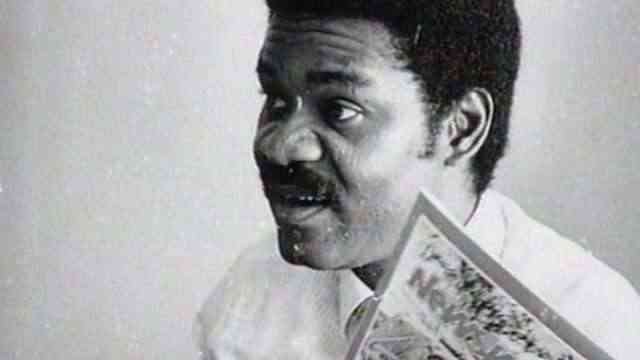The death of the famous Nigerian journalist, co-founder and Editor-in-Chief of Newswatch Magazine, Dele Giwa, reads more like a page from an espionage screenplay than a real-life event.
It is however as real as day. On October 19, 1986, the muckraking Giwa died after opening a parcel bomb at his residence in the Lagos state capital, Ikeja.
A little less than 34 years after, Dele Giwa’s assassination has become one of the most high profile cold cases in the country, rivalled perhaps, by the assassination the then Minister of Justice and Attorney-General of the Federation, Bola Ige on December 23, 2001.
Over the years, Dele Giwa’s death has floated across the hallways of time and sadly has become a cautionary tale for those in pursuit of the truth. His untimely death was a big blow to Nigerian journalism, a dent that can still be felt.
Sumonu Oladele “Baines” Giwa was born on March 16, 1947. He came from a very humble background. His poor family worked in the palace of Oba Adesoji Aderemi, who was the then Ooni of Ife.
He first attended Authority Modern School in Lagere, Ile-Ife, and moved to Oduduwa College when his father secured a job as a laundryman in the College.

For his higher education, the young Giwa earned an admission to study English at the Brooklyn College. He graduated in 1977 and later enrolled for a Graduate Program at Fordham University.
He would get solid journalism experience working as a News Assistant for the New York Times. After four years working with the bastion of journalistic excellence, he moved back to Nigeria and secured a job with Daily Times .
In 1984, he co-founded Newswatch with fellow journalists Ray Ekpu, Dan Agbese and Yakubu Mohammed. The first edition of the weekly news magazine came out a year later.
According to the ‘International Afro Mass Media: A Reference Guide’, Newswatch “changed the format of print journalism in Nigeria [and] introduced bold, investigative formats to news reporting in Nigeria.” As of 1996, the weekly magazine circulated 150,000 copies in Africa, Europe and North America.
The IBB years
On August 27, 1985, Ibrahim Badamasi Babangida came into power after a palace coup that ousted General Muhammadu Buhari. Within the first year of his administration, Newswatch had a favourable view of the new military ruler.

According to ‘Africa’s Second Wave of Freedom: Development, Democracy, and Rights’, “Babangida was on the magazine’s cover four times, the first three in the first three months. He was also the subject of three favourable editorials in the magazine. Indeed, the editor’s opinion columns ‘criticized anyone…who attempted to make life unpleasant for Babangida’.”
After the initial wave of positive coverage, the magazine would take a harder stance on IBB’s regime.
On Sunday, October 19, 1986, Dele Giwa’s son received a parcel at their home: No 25B, Talabi Street, off Adeniyi Jones, Ikeja, Lagos. Billy Giwa gave the parcel to his father in his study with Mr Kayode Soyinka , the London bureau chief of Newswatch.
According to several reports, an envelope was on the parcel and written on it was “From the Office of the C-in-C” (Commander-in-Chief), with instructions that only the addressee should open it.
As soon as his son left the study, Dele Giwa tried to open the parcel and the bomb went off.

Giwa was taken to First Foundation Medical Centre, Opebi, Ikeja where he passed away around noon from injuries he sustained from the blast.
Aftermath
There have been several attempts to find who sent the parcel bomb to Dele Giwa, but they have all disappeared in the midst of conspiracy theories and stonewall blockades.
A 1993 story from TELL Magazine claims that the late human rights activist and lawyer Gani Fawehinmi “filed at least 32 cases and made 315 court appearances on the Dele Giwa issue.”

The question “Who Killed Dele Giwa?” vehemently echoes the saying: ‘justice delayed is justice denied.’ The mystery of the assassination of one of Nigeria’s most foremost journalists is a sad reminder that justice is nothing more than a 7 letter word in our country.


